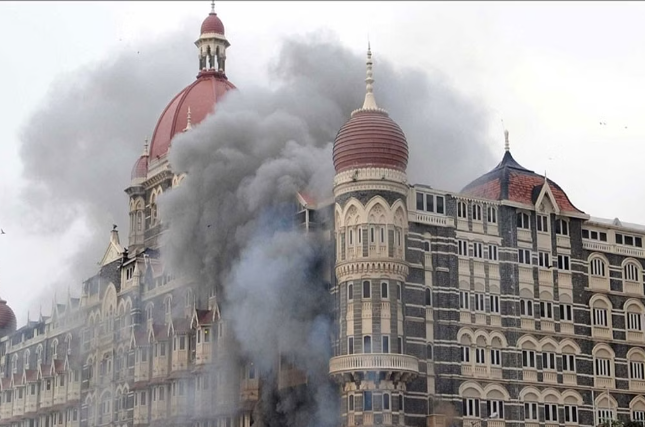
Abdul Salam Bhuttavi: UN Confirms Death of 26/11 Key Planner and Hafiz Saeed’s Deputy – A Blow to Terror Networks
Abdul Salam Bhuttavi: UN Confirms Death of 26/11 Architect and Hafiz Saeed’s Deputy, Signifying a Decisive Blow to Terrorism
The confirmation of Hafiz Abdul Salam Bhuttavi’s death by the United Nations Security Council (UNSC) represents a significant development in the aftermath of the 26/11 Mumbai attacks. Bhuttavi, a founding member of Lashkar-e-Tayyiba (LeT) and the deputy to Hafiz Saeed, played a pivotal role in the planning of the horrific events that claimed the lives of over 150 people.
According to the UNSC, Bhuttavi passed away due to cardiac arrest on May 29, 2023, while serving his sentence in a Pakistani jail located in Muridke city. This revelation follows the release of a video last year by LeT’s front organizations, ostensibly showing Bhuttavi’s funeral held at the group’s ‘markaz’ or center in Muridke.

In the wake of Bhuttavi’s demise, the UNSC also provided an update on Hafiz Saeed, the mastermind behind the 26/11 Mumbai terror attacks. Saeed is currently in the custody of Pakistan, serving a 78-year imprisonment sentence since February 12, 2020.
Hafiz Abdul Salam Bhuttavi’s Role in LeT:
Abdul Salam Bhuttavi , as the deputy to Hafiz Saeed, assumed a crucial position within LeT’s hierarchy. Serving as the acting emir on multiple occasions when Saeed was detained, Bhuttavi played a key role in orchestrating the Mumbai attacks, contributing to the loss of more than 150 lives. His involvement extended to preparing operatives for the November 2008 terrorist assault by delivering lectures on the merits of martyrdom operations.
Beyond his role in operational planning, Bhuttavi was entrusted with the responsibility of overseeing LeT’s madrassa network. He served as a preeminent scholar, providing instructions to leaders and members while issuing fatwas authorizing various operations. In mid-2002, he was assigned the task of establishing LeT’s organizational base in Lahore, showcasing his significance in shaping the group’s strategic presence.
The UNSC had designated Bhuttavi as a terrorist in 2012, citing his association with al-Qaeda and his involvement in financing, planning, facilitating, preparing, or perpetrating acts or activities on behalf of LeT.
The official statement from the UNSC on March 14, 2012, highlighted Bhuttavi’s listing pursuant to resolution 1989 (2011). The statement reads, “Hafiz Abdul Salam Bhuttavi was listed on 14 March 2012 pursuant to paragraph 4 of resolution 1989 (2011) as being associated with Al-Qaida for ‘participating in the financing, planning, facilitating, preparing, or perpetrating of acts or activities by, in conjunction with, under the name of, on behalf of, or in support of’ or ‘otherwise supporting acts and activities of’ Lashkar-e-Tayyiba (QDe.118).”

With Hafiz Saeed’s subsequent arrest, Abdul Salam Bhuttavi took charge of LeT’s day-to-day functions, showcasing his ability to make independent decisions and manage the group’s operations.
The confirmation of Abdul Salam Bhuttavi death not only marks a significant development in the fight against terrorism but also raises questions about the broader implications for LeT’s leadership structure and operational continuity. As the international community continues its efforts to combat terrorism, the demise of key figures like Abdul Salam Bhuttavi and the incarceration of individuals such as Hafiz Saeed serve as critical milestones in dismantling terror networks and pursuing justice for the victims of heinous acts.
uttavi’s influence extended to overseeing LeT’s madrassa network, where he served as a preeminent scholar, providing instructions to leaders and members. His responsibilities included delivering lectures on the merits of martyrdom operations, contributing to the indoctrination and preparation of operatives involved in the November 2008 terrorist assault in Mumbai.
Apart from his involvement in operational aspects, Abdul Salam Bhuttavi was tasked in mid-2002 with establishing LeT’s organizational base in Lahore, demonstrating his significant role in shaping the group’s strategic presence. The UNSC, recognizing his association with al-Qaeda, designated Abdul Salam Bhuttavi as a terrorist in 2012 for his participation in the financing, planning, facilitating, preparing, or perpetrating of acts or activities by LeT.
The official statement from the UNSC on March 14, 2012, regarding Abdul Salam Bhuttavi listing read, “Hafiz Abdul Salam Bhuttavi was listed pursuant to paragraph 4 of resolution 1989 (2011) as being associated with Al-Qaida for ‘participating in the financing, planning, facilitating, preparing, or perpetrating of acts or activities by, in conjunction with, under the name of, on behalf of, or in support of’ or ‘otherwise supporting acts and activities of’ Lashkar-e-Tayyiba.”
Following the arrest of Hafiz Saeed, Abdul Salam Bhuttavi assumed the responsibility of managing LeT’s day-to-day functions, showcasing his capacity to make independent decisions and maintain the group’s operational momentum. His leadership during this period was marked by the continued pursuit of LeT’s objectives, despite the significant setback caused by Saeed’s imprisonment.

The confirmation of Abdul Salam Bhuttavi demise brings closure to a chapter in the history of terrorism that saw him as a key figure in orchestrating one of the deadliest attacks on Indian soil. The Mumbai attacks of 2008, planned under his leadership, left an indelible mark on global security consciousness.
The video released by LeT’s front organizations, ostensibly showcasing Abdul Salam Bhuttavi funeral, adds a layer of complexity to the narrative. It underscores the clandestine nature of such organizations, capable of manipulating information and presenting a façade even in the face of official confirmation of Bhuttavi’s death by the UNSC.
As the UNSC verifies Abdul Salam Bhuttavi passing, it also sheds light on the ongoing efforts to curb terrorism and bring individuals associated with such activities to justice. The imprisonment of Hafiz Saeed and the confirmation of Bhuttavi’s death signal significant blows to the leadership structure of LeT, creating challenges for the group’s continuity and operational efficiency.
While the confirmation of Abdul Salam Bhuttavi death provides a sense of justice for the victims of the 26/11 Mumbai attacks, it also serves as a reminder of the persistent threat posed by terrorist organizations. The intricate networks, ideological fervor, and adaptability demonstrated by groups like LeT necessitate a continued global effort to counteract their influence and activities.
In conclusion, the confirmation of Hafiz Abdul Salam Bhuttavi’s death by the UNSC marks a crucial development in the ongoing battle against terrorism. His role in the planning of the 26/11 Mumbai attacks and subsequent leadership within LeT showcased the intricate nature of terrorist organizations. As efforts to counteract such threats persist, the international community remains vigilant, recognizing the importance of dismantling key figures and disrupting the operational capabilities of these groups.
For the latest updates-click here.


